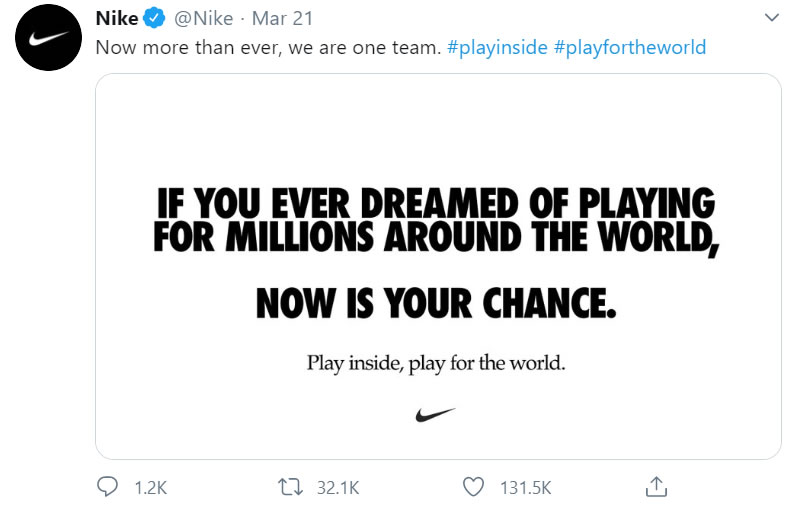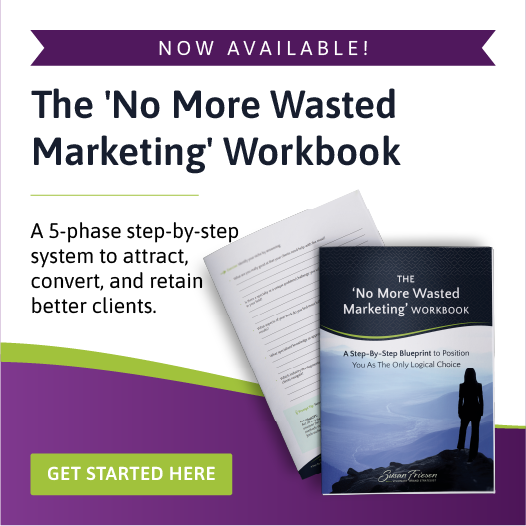How to Position Your Brand Messaging During COVID-19
When I say the word “brand,” what comes to mind? A corporate giant like Amazon, or the colours of a company’s logo?
Actually, brands are much more than just a visual representation, tagline, jingle or website; and it’s not just something that only the “big guys” should pay attention to.
Your branding represents the total experience of working with you.
From your website colours, to your core values, to the customer service you deliver, every touchpoint someone has with you shapes and helps define your brand messaging—whether their impression is favourable or not.
Business success often all comes down to how you position your branding.
That’s not an easy thing to do, and it takes time and consideration. You have to:
- Do a branding analysis
- Do a competitor analysis and conduct competitor research
- Identify what makes you unique and why this is a critical step
- Create your brand’s positioning statement to use on your website, social media and even at networking events
- And that’s just the beginning!

This brand storyboard is the result of our recent re-branding process
I talk more about how to develop your unique positioning here. And a professional marketing company can ensure you most effectively position your brand messaging during COVID-19.
How Could COVID-19 Change Your Brand Messaging?
The COVID-19 pandemic has forced us to take another look at how we’ve positioned our branding.
First, ask yourself, “What do I want to be known for during this time?” People will remember how you made them feel right now, whether that’s positive or negative. And note:
1. People are spending more time online.
It’s estimated that half the global population is under either a recommended or a required lockdown. According to Neilsen, media consumption has increased by as much as 60% during the COVID-19 crisis.
So whether you’re creating paid ads, social media posts, blogs or website copy, your target audience is more likely than ever to see your branding.
Are you building your brand’s awareness and resonating with your customers?
Are you sending the right message, or is your brand’s voice tone deaf? You may have to change your brand messaging to fit with this “new normal.”
2. People are engaging with brands differently.
With many stores still closed, consumers are turning to websites to get the goods they need and want.
Because supply chains have been impacted, even essential things that consumers get in-store may be out of stock, which also contributes to people turning to the virtual world to stock up.
That means your customers are expecting a seamless online shopping experience.
Does your website navigation, imagery and text inspire confidence that their information will be secure? How fast can you respond to customer service issues?
While some of these changes may be temporary, and people will go back to shopping in stores at some point, I predict we’re going to see a permanent shift in this type of consumer behaviour.
People have had to become tech-savvy, and many are now fully realizing the convenience online shopping offers. I don’t think we’re going to see all of that tech adoption come undone once life returns to normal (whatever that normal is).
How you are brand marketing during coronavirus matters today and, in the future, and it could very well change your messaging going forward.
READ: Your Guide to Paid Marketing During COVID-19
If you’re wondering how COVID-19 is affecting paid advertising campaign strategies, you’re not alone! And the answer is: both negatively and positively.
On the one hand, people are home more, and doing virtually everything online. But many people are reducing what they spend because they’ve lost their job or are trying to save some money to get their family through the pandemic.
So I’m sharing some tips on managing PPC during the coronavirus. PPC stands for pay-per-click advertising, also known as non-organic traffic. (Organic traffic comes from unpaid SEO techniques).
How to Position Your Brand Messaging During COVID-19
Your customers are looking to you for reassurance and guidance during this time.
All of your branding messages should be coming from a place of empathy, caring and kindness. Here are 4 ways to position your brand messaging during COVID-19.
1. Humanize your branding.
It’s more important than ever to be human and authentic in your communications.
One great way to show the human side of your small business is by creating memorable moments that can be shared through stories.
You could create a video for social media that features a customer’s story about an employee who went the extra mile. Or, you could focus on employee stories, so people get to know who’s supporting you through this crisis.
It’s OK to be a little light-hearted during this time too, as long as you’re sensitive to the fact that this is a trying and tragic time for many people. Be aware of what you share!
2. Increase your social media presence.
From community initiatives you’re supporting, to changing store hours, to new services you’re offering, stay active on social.
Even if you have no news to share, keep your social media accounts updated by sharing relevant news, articles and videos from other sources.
Even a few inspirational words from you can remind people that you’re out there, and that you care.

3. Create customer delight.
Customer delight is about exceeding customer expectations, not just meeting them. There are many ways to delight customers, including:
- Being flexible. Don’t always say “no” just because you’ve always done it that way. Listen to your customers and be as flexible as possible to meet their needs.
- Adding a personal touch. Send an eCard or a promo code on their birthday, for example.
- Giving them something. Whether it’s a contest or a freebie tucked into their package, little surprises can go a long way.
4. Speak up as a leader.
Nobody is going to be impressed by a generic message on your website that says something like “We take your health very seriously,” with no examples of how, or no “face” behind the message.
Define your brand messaging, then tell people the what, why, when and how of your coronavirus plan. They’ll appreciate your honesty and transparency.
Your branding may be your only chance at making a first impression on a potential customer—and that’s when we’re not in the midst of a pandemic!
Right now, people’s emotions are running high, and a brand’s blunders may not be as easily forgiven or forgotten as we’ve recently witnessed with Canadian artist Bryan Adam’s Instagram backlash.

Bryan Adams facing follower wrath from posting an emotional rant on Instagram.
By leading with empathy and really understanding your target audience and what they’re going through, your brand marketing during coronavirus will be authentic and truly resonate with your customers.
To your business success,
Susan Friesen
P.S. If you liked the article, you might want to subscribe to our newsletter. We publish tons of valuable content to help you learn more about marketing, and subscribing is the best way to ensure you don’t miss out. Additionally, if you’d like to learn more about building a search engine optimized website, click here for our free website guide.









